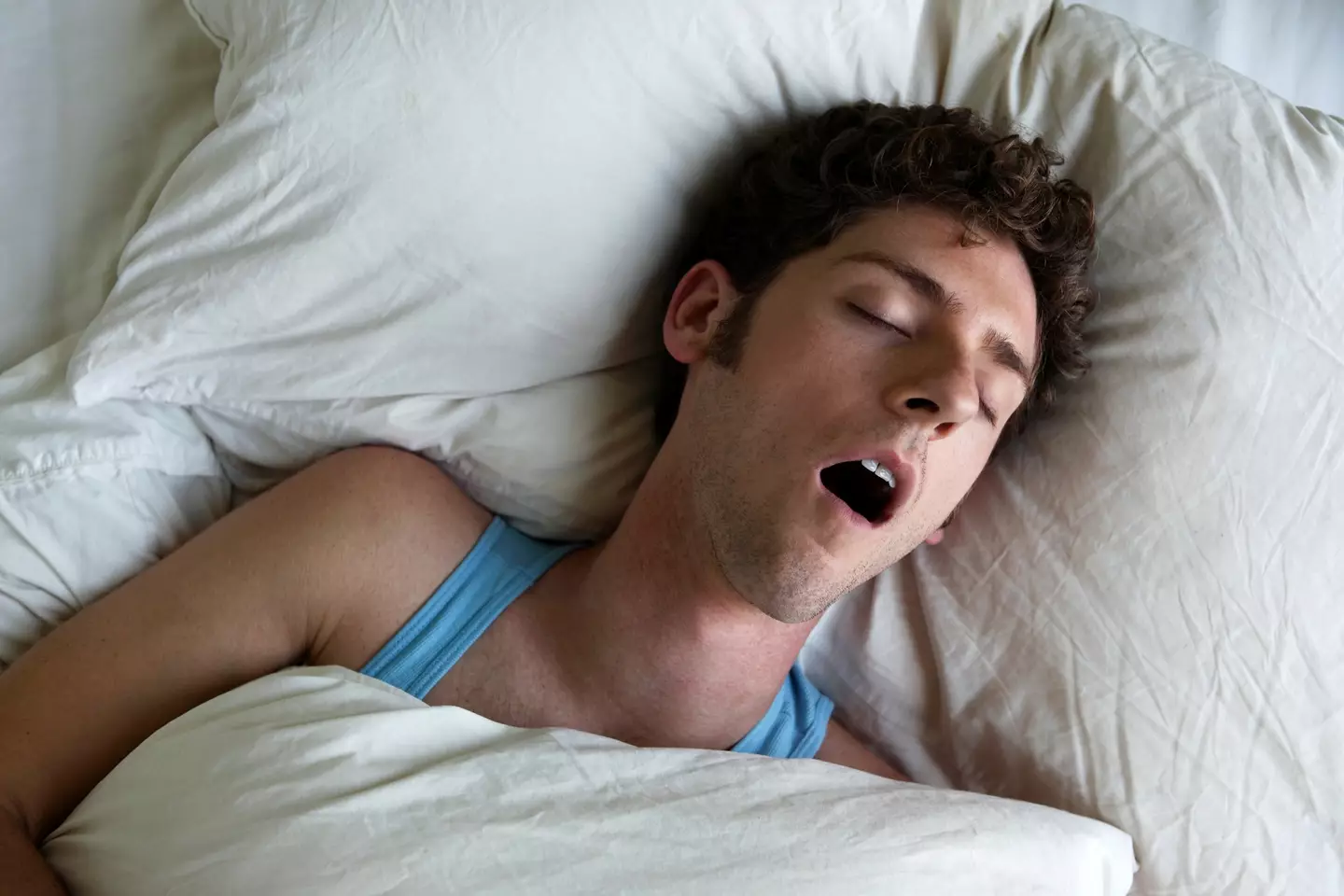
Topics: Sleep, Health, World News
A new large-scale sleep study has revealed a common snoozing habit could indicate a more troubling sign.
In the US, an estimated 45 percent of adults hit the hay and occasionally make a bit of a racket, accounting for 90 million Americans, with 25 percent doing it regularly, according to Yale Medicine.
And it can be quite annoying, not only for the loved ones attempting to sleep next to them or their family in the same home, but also for the sufferer who can wake themselves up and struggle to get a good night's shut eye.
The common night-time habit we're talking about here is, of course, snoring, though irritation aside, a new study has revealed it could be a sign of a dangerous underlying health condition.
Advert
The research, based on the largest study of its kind with 12,000 participants around the world, found those who snore the night away on a regular basis, particularly overweight middle-aged men, are at increased risk of having elevated blood pressure and hypertension, as per The Mirror.

The Mayo Clinic warns high blood pressure affects the body's arteries as the force of the blood pushing against the artery walls is too high, forced the heart to work harder to pump blood.
Hypertension is considered to be high blood pressure sustained over time and can pave the way to serious complications like heart failure, stroke, heart disease or kidney disease.
The study, conducted by sleep experts at Flinders University, is the first to use home-based monitoring technologies, 'sleep trackers' that were placed under mattresses, over a prolonged period of time of nine months to investigate the suspected link between snoring and hypertension.
Lead author Dr Bastien Lechat from the College of Medicine and Public Health said: "For the first time, we can objectively say that there is a significant connection between regular nighttime snoring and high blood pressure.
"We found that 15 percent of all participants in the study, who were primarily overweight men, snore for more than 20 percent of the night on average and that this regular nightly snoring is associated with elevated blood pressure and uncontrolled hypertension.
"These results emphasise the significance of considering snoring as a factor in healthcare and treatment for sleep-related issues, especially in the context of managing hypertension."

Professor Danny Eckert, Director of Sleep Health at Flinders University and the senior author of the study, also said: "We observed that in those who snore regularly the risk of having uncontrolled hypertension was almost double. This risk almost doubled again in people who snored regularly and had sleep apnoea versus those who did not snore regularly," reports SurreyLive.
Dr Lechat added: "This is the largest study to date investigating the potential relationships between snoring, sleep apnoea and hypertension using objective assessments in people's homes, and it reveals important insights into the potential consequences of snoring on hypertension risk.
"The findings of this study pave the way to further investigate whether therapeutic interventions directed toward snoring can reduce hypertension and reduce the risks associated with it."